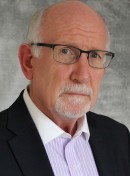Guest Column: Is telling the truth merely a relic of a bygone era?
I have among my keepsakes a little ditty, handwritten to me by my father when I was 8 or 10: “Boy, at all times tell the truth. Let no lie defile thy mouth. If thou art wrong, be still the same. Speak the truth and bear the blame.” The message, though old-fashioned, was clear: Don’t try to lie your way out of trouble.
My church augmented my parents’ effort to ensure that their offspring were honest. We were taught that the ninth commandment’s prohibition against bearing “false witness” has far-reaching implications:
“False speaking in any matter, every attempt or purpose to deceive our neighbor, is here included. An intention to deceive is what constitutes falsehood. By a glance of the eye, a motion of the hand, an expression of the countenance, a falsehood may be told as effectually as by words. All intentional overstatement, every hint or insinuation calculated to convey an erroneous or exaggerated impression, even the statement of facts in such a manner as to mislead, is falsehood. This precept forbids every effort to injure our neighbor’s reputation by misrepresentation or evil surmising, by slander or tale bearing. Even the intentional suppression of truth, by which injury may result to others, is a violation of the ninth commandment.”
But absolute honesty wasn’t just a religious requirement. It was also an American social value. There was a reason, I was taught in my high-school civics class, why the oath administered to witnesses at a trial called not just for the truth, but for the whole truth, and nothing but the truth. And even when not under oath, honesty was no less a social-moral imperative.
I was taught that sloppiness in describing can also create an opening for misconceptions. In a college science class, I heard the story of a scientist and his non-scientist friend who, while traveling on a train, saw sheep grazing on a hillside.
“Those sheep have just been shorn,” the non-scientist said.
“At least on the side we can see,” replied the scientist — humorously highlighting the reality that even seemingly reasonable assumptions shouldn’t be confused with facts.
And in a college journalism class I was similarly warned against allowing logical extrapolations to lead to indefensible assertions.
The professor cautioned against saying someone “believes” something: “Now if they say they believe something, you’re totally free to report what they actually said, because what they said can be verified. But don’t assume, just because people say they believe something, that they actually do. Verify — or appropriately qualify — everything you write.”
I don’t expect everyone to be perfectly accurate in their use of language — though it would be great if we all made that a goal. However, those who’ve had the benefit of education and moral instruction should have an unwavering commitment to telling the truth, especially those who hold positions of leadership and authority.
A friend back in middle school often quoted a biblical-sounding proverb he’d made up: “A lie is an abomination, and an ever-present help in time of need.”
His proverb was witty. But I never thought I’d see the day when it would be widely embraced within society.
Well, actually, the first part of his proverb hasn’t been embraced, because there’s paltry little evidence that today’s leading liars — whatever their profession and whatever their ideological allegiance — buy into the once-widespread belief that a lie is an abomination.
But granted the sheer volume of falsehoods being foisted on the public, there’s overwhelming circumstantial evidence that those same liars wholeheartedly embrace the heresy that lies are an ever-present help in time of need.

